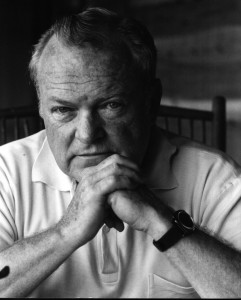Posts tagged ‘Formula for Change’
The Theorists – Richard Beckhard
There are a number of individuals who throughout the history and emergence of Organization Development have made a significant contribution to both the academic theory and practice of the field of OD.
Richard Beckhard – In Brief
Richard Beckhard was among the pioneer consultants who in the 1950s invented the field of organization development (OD to describe a consulting approach that was an innovative bottoms-up change effort.
Beckhard defined Organization Development as “an effort (1) planned, (2) organization-wide, and (3) managed from the top, to (4) increase organization effectiveness and health through (5) planned interventions in the organization’s “processes,” using behavioral-science knowledge”
When describing possible intervention strategies Beckhard made several assumptions about the nature and functioning of organizations including:
- The basic building blocks of an organization are groups (teams). Therefore, the basic units of change are groups, not individuals.
- An always relevant change goal is the reduction of inappropriate competition between parts of the organization and the development of a more collaborative condition.
- Decision making in a healthy organization is located where the information sources are, rather than in a particular role or level of hierarchy.
- Organizations, subunits of organizations, and individuals continuously manage their affairs against goals. Controls are interim measurements, not the basis of managerial strategy.
- One goal of a healthy organization is to develop generally open communication, mutual trust, and confidence between and across levels.
- People support what they help create. People affected by a change must be allowed active participation and a sense of ownership in the planning and conduct of the change.
Along with his colleagues Warren Bennis and Edgar Shein, Beckhard collaborated in the launching of the famous Addison-Wesley Organization Development Series and initiated the Network of Organizational Development.
He pioneered the use of T-Groups for top executives and together with David Gleicher, he is credited with developing a Formula for Change. The formula (D x V x F > R) proposes that the combination of organisational dissatisfaction, vision for the future and the possibility of immediate, tactical action must be stronger than the resistance within the organisation in order for meaningful change to occur.
Three factors must be present for meaningful organizational change to take place. These factors are:
D = Dissatisfaction with the status quo;
V = Vision of what is possible;
F = First, concrete steps that can be taken towards the vision.
R = If any of these factors are missing or weak, then you’re going to get resistance.
Richard Beckhard – Life and Times
- 1918 – Born New York City
- 1931 – He began his career in the theatre, first as an actor and then as a Broadway stage manager. During World War II, he directed the entertainment of troops in the Pacific.
- 1963 – Adjunct professor at the MIT Sloan School of Management
- 1967 – Co-launched the Addison-Wesley Organization Development Series
- 1967 – Began the Organization Development Network
- 1969 – Published his classic work, Organization Development: Strategies and Models,
- 1970s – Founded The Family Firm Institute
- 1977 – Published
- 1984 – Retired from the MIT Sloan School of Management
- 1987 – Published
- 1999 – Died
Richard Beckhard – Key Contributions
Beckhard’s innovations were legendary: inter-group confrontation meetings; responsibility charting; team building, all in service of large strategic goals for business leaders. For nearly 50 years, Beckhard helped organizations function in a more humane and high-performing manner, and to empower people to be agents of change.
Beckhard wrote eight books and numerous articles, including Organization Development: Strategies and Models; Changing the Essence; and Richard Beckhard: Agent of Change: My Life, My Practice.

